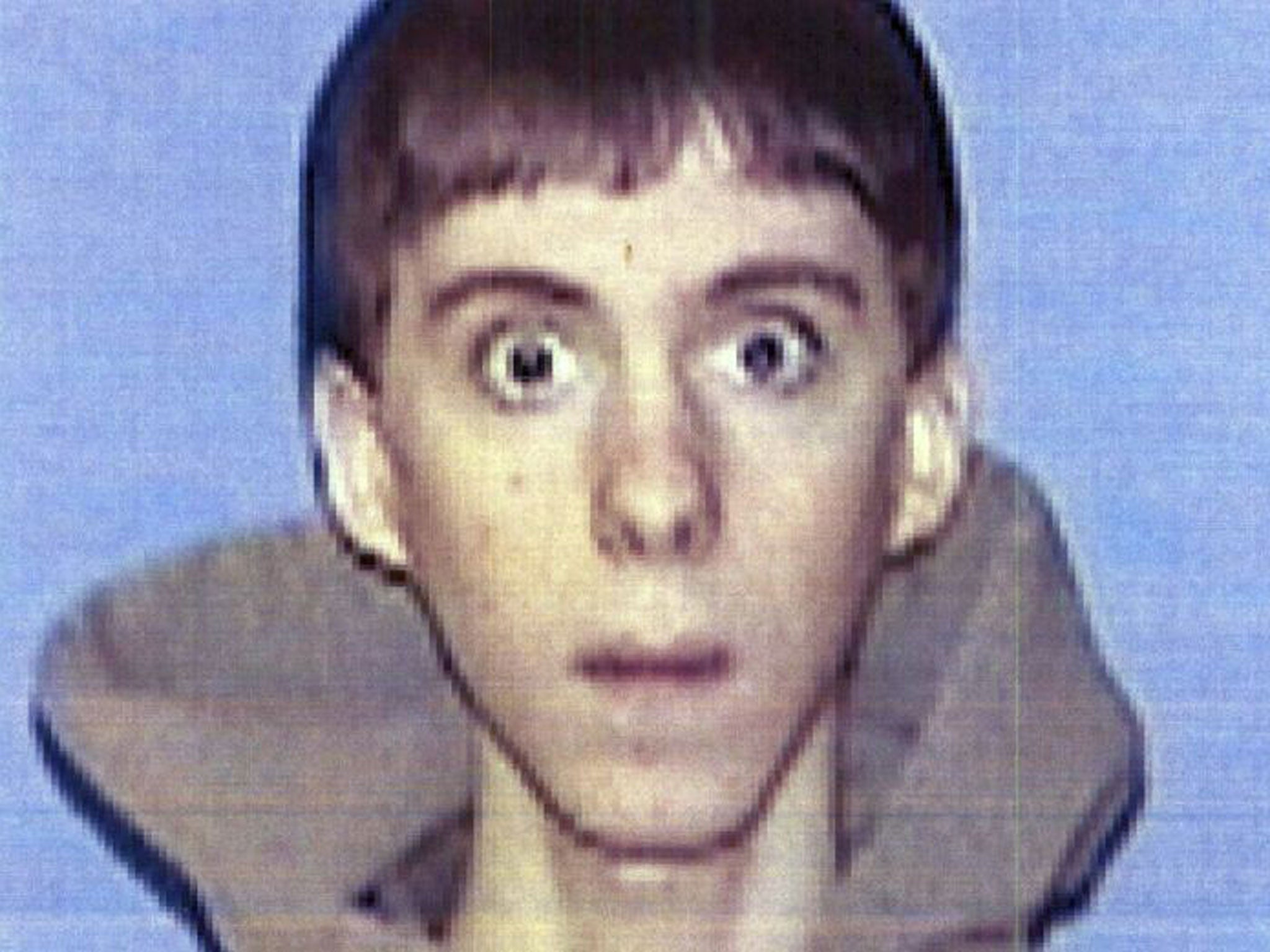'My son couldn't get any more evil', says father of Connecticut school massacre gunman
Peter Lanza spoke about his struggle to understand why Adam Lanza murdered 27 people in 2012

Your support helps us to tell the story
From reproductive rights to climate change to Big Tech, The Independent is on the ground when the story is developing. Whether it's investigating the financials of Elon Musk's pro-Trump PAC or producing our latest documentary, 'The A Word', which shines a light on the American women fighting for reproductive rights, we know how important it is to parse out the facts from the messaging.
At such a critical moment in US history, we need reporters on the ground. Your donation allows us to keep sending journalists to speak to both sides of the story.
The Independent is trusted by Americans across the entire political spectrum. And unlike many other quality news outlets, we choose not to lock Americans out of our reporting and analysis with paywalls. We believe quality journalism should be available to everyone, paid for by those who can afford it.
Your support makes all the difference.The father of gunman Adam Lanza, who carried out the 2012 Connecticut school massacre, has said his son “couldn’t get any more evil”.
In his most extensive public comments to date, Peter Lanza said he wished his son, who killed 27 people including 20 children, had never been born.
In a series of interviews with The New Yorker Magazine, Mr Lanza describes his anguished struggle to comprehend what Adam did, contemplating whether he could have done anything differently in his relationship with his son.
But he concedes that the killings couldn’t have been predicted and claims that he believes Adam would have killed him too, if the opportunity had arisen.
"Any variation on what I did and how my relationship was had to be good, because no outcome could be worse," Mr Lanza told the magazine in an article dated 17 March.
"You can't get any more evil. ... How much do I beat up on myself about the fact that he's my son? A lot."
He said he hadn’t seen his son in two years when Adam killed 20 first-graders and six teachers at Sandy Hook Elementary School in Newtown in December 2012. He turned the gun on himself as police arrived.
Adam had fatally shot his mother Nancy in their Newton home before going to the school.
The magazine interviews are Mr Lanza's first public comments since he released a statement the day after the massacre expressing sympathy for the victims' families and confusion over his son's actions.
Peter and Nancy Lanza separated in 2001 and eventually divorced in 2009. He last saw Adam in October 2010 and had wanted to keep in touch. But he received an email from Nancy saying that Adam didn’t want to see his father, despite his mother’s efforts to reason with him.
Driven by frustration, Mr Lanza even considered hiring a private investigator to find out what his son was doing “so I could bump into him”. He said he felt that showing up unannounced at his son’s home would only make things worse.
Mr Lanza said Adam was 13 when a psychiatrist diagnosed him with Asperger's syndrome, a form of autism not associated with violence. But he believes the syndrome "veiled a contaminant" that wasn't Asperger's.
"I was thinking it could mask schizophrenia," said Mr Lanza, who lives in Fairfield County, Connecticut, and is vice president for taxes at a General Electric subsidiary, GE Energy Financial Services.
A spokesman for Mr Lanza said Monday that he would not be commenting further.
Mr Lanza told the magazine that as a young child, his son was "just a normal little weird kid" but, as he grew older, Adam's mental health problems worsened, according to Connecticut State Police documents.
A Yale University professor diagnosed him in 2006 with profound autism spectrum disorder, "with rigidity, isolation, and a lack of comprehension of ordinary social interaction and communications," while also displaying symptoms of obsessive-compulsive disorder.
Mr Lanza said his and his wife’s concerns about Adam increased when he began middle school.
"It was crystal clear something was wrong," he said.
"The social awkwardness, the uncomfortable anxiety, unable to sleep, stress, unable to concentrate, having a hard time learning, the awkward walk, reduced eye contact. You could see the changes occurring."
After the killings, police investigators discovered that Adam had written violent stories as a child and later became interested in mass murders.
Mr Lanza believes his son had no affection for him at the time of the shootings. He said he has searched psychiatric literature on mass killers to try to understand what happened.
"With hindsight, I know Adam would have killed me in a heartbeat, if he'd had the chance. I don't question that for a minute," he told the magazine.
He was asked how he would feel if he could see his son again. "Quite honestly, I think that I wouldn't recognize the person I saw," he said.
"All I could picture is there'd be nothing there, there'd be nothing. Almost, like, 'Who are you, stranger?"'
He said he wished Adam had never been born. "That [wish]didn't come right away," he said.
"That's not a natural thing, when you're thinking about your kid. But, God, there's no question. There can only be one conclusion, when you finally get there. That's fairly recent, too, but that's totally where I am."
Additional reporting by Associated Press
Join our commenting forum
Join thought-provoking conversations, follow other Independent readers and see their replies
Comments